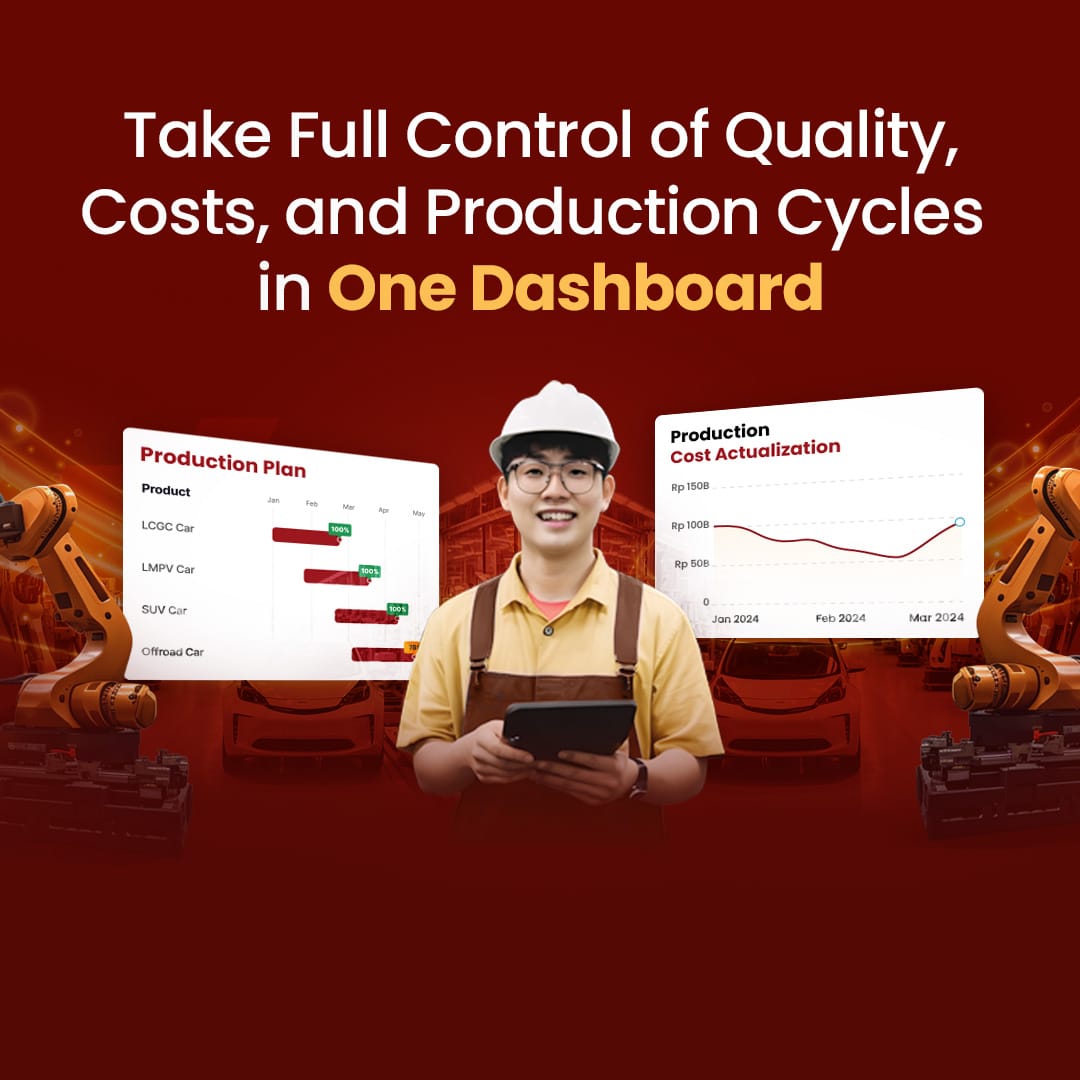It serves as a guide for the company’s manufacturing activities. This process needs to run in the company by determining and sequencing the actions taken to achieve production targets. All staff involved can find out everything related to the process. With manufacturing software, companies can assist in the production planning steps.
Production planning is an administrative process in a manufacturing business. So it is necessary to ensure that the required raw materials, staff, and other items have been procured and ready to manufacture the finished product according to the specified schedule.
To simplify those production planning steps, you can utilize ERP manufacturing software. It helps to manage production planning easily in one system to increase their productivity and reduce expenses. For more convenience to handle every aspect of a manufacturing company effortlessly, you can implement an ERP system from HashMicro.

Table of Content:
Table of Content
The following are several production planning steps:
Estimate the demand for your product
Estimate consumer demand so that businesses can know how many products the company needs to produce over a certain period. The company may already know the number of confirmed orders for the next few months. However, you do need to keep predicting how many more may be there.
There are different methods of estimating the demand for your product. Traditional techniques for estimating product demand are based on historical information, such as past orders placed by customers. While this is a widespread method, you need to consider external and internal events that can change past patterns in your business environment. Some examples are recent market trends, economic slowdowns, or marketing campaigns that can increase or decrease product demand compared to what has happened in the past.
Determine potential options for the production process
Define the various production options available to meet the estimated product demand. For example, if you want to produce a specific product, you need to use machines, human resources, and materials.
Firstly, start by mapping out all the stages of planning your production. The production process plan will be different and unique for each company. Next, determine the necessary resources to complete each task involved in the production process. Finally, look at how different combinations of resources result in additional production times and costs, such as:
- Human resources
Determine the number of staff involved in each stage of the production process, their availability, and costs. Then, make sure their time is well spent.
- Machinery and Equipment
Identification of the machines required and their availability, including any maintenance or replacement that may be required.
- Ingredients
Make a list of all the materials needed for production and how you will get them. Review the supplier’s capabilities, including delivery times. Having the materials available when needed is essential for the production process.
- Inventory
Consider ways to optimize your list. Storing large amounts of stock requires a lot of costs. On the one hand, keeping a small amount of inventory is also risky because there can be fluctuations in demand from time to time.
The use of inventory management software that is already integrated with the accounting system can help you plan inventory costs, control procurement of goods and manage orders. In addition, inventory management software can optimize inventory levels, monitor stock transfer processes, estimate inventory needs and stock management.
Select options for products that use the combination of resources more effectively
Compare the costs and times of each potential production option. Select the option that uses the most efficient combination of resources and allows product demands to be met. The option chosen must maximize the company’s operational capacity. Always make sure that the company can cover the costs involved in the production process, such as purchasing materials and paying staff salaries.
Provide your production plan with all the departments and staff involved. Suppose everyone knows what to do and what materials and equipment to use for each production process task. In that case, the chances of running a smooth operation of operations will be even higher.
Performance Monitor and Control
At this stage of production planning, make sure that the process has gone according to plan. Monitoring and controlling is about comparing what happened with what should have happened. Have a control system in place to help detect problems as soon as they occur, giving you more time to fix them before it’s too late.
Adjustments
Be prepared to adjust plans if needed. Production plans must be flexible to accommodate changes in customer demand. Besides, you need to take into account the possible risks that may arise during the production process. Examples include machine failure, workers falling ill, or suppliers not delivering on time and having a risk mitigation plan.
Conclusion
A production plan will help meet product demand while minimizing production time and costs by simplifying processes, reducing the waiting time between operations, and optimizing the use of the plant, equipment, and inventory. You have to align your production planning steps with your strategy and business plan and support production planning in coordination with other departments, such as procurement, finance, and marketing.

Therefore, it is important to choose the best production planning system that suits your company’s needs. Hashmicro is the best manufacturing management system provider in Singapore and Indonesia. Hash Manufacturing Automation system from HashMicro can increase the productivity and profitability of your manufacturing business for fast and accurate results. Gain full control of every production process with Hash Manufacturing Automation, from production planning to report creation easily and efficiently.
Related articles:






















































